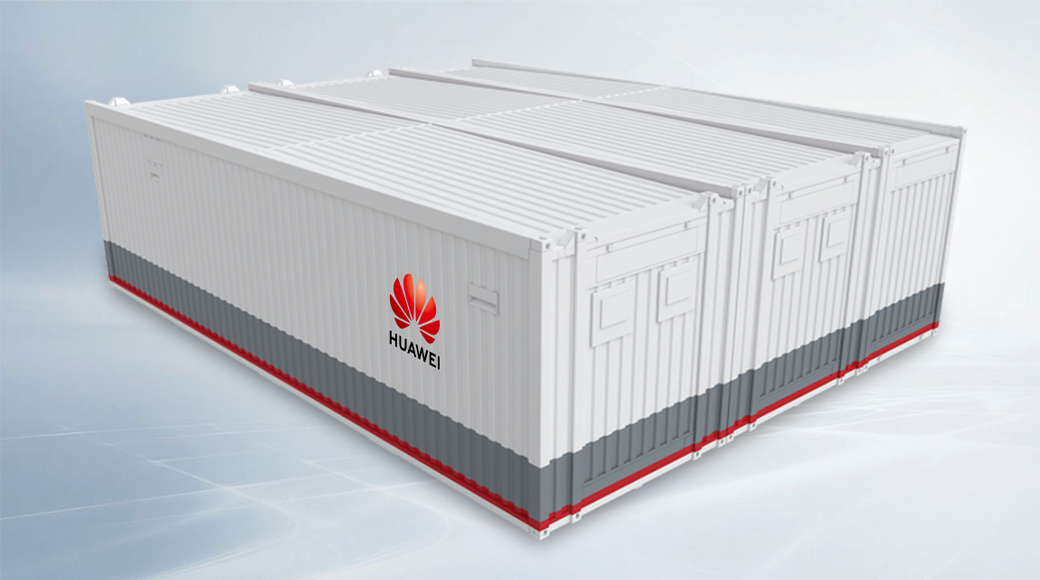[Johannesburg, 8 September 2022] Huawei recently hosted its Digital Power Tech Summit 2022, aimed at encouraging a shift towards more sustainable, secure, and efficient data centre infrastructure. During the event, held at its Johannesburg campus, the global ICT provider showcased its advanced technologies in data centre Artificial Intelligence (AI) and Optimised Energy Efficiencies to key business and IT decision makers.
The event focused on the rapidly growing data centre demand, driven by the exponential growth of data and consumer-driven digital transformation of businesses across the African continent, as well as the need for more sustainable construction, operations, and management of data centres as the continent pursues carbon neutrality and net zero carbon emissions.

"From an African perspective, we're experiencing an explosion in data with a consistent growth in data creation between 15 and 20% per annum since 2020, a rate which will continue within the foreseeable future. As a result, we're seeing significant adoption of digitalisation across the continent as businesses seek to gain value from the data they generate and meet changing consumer demands," said Riaan De Leeuw, Huawei Digital Power Business Development Executive.
However, he observed that because Africa currently does not have the infrastructure to meet the growing data and digitalisation demands of both businesses and consumers, enterprises would need to look at data centre infrastructure that is cost efficient while also allowing critical business data to be accessed anywhere, at any time. He added that colocation data centres offered significant opportunities for the continent as it would enable the delivery of data centre infrastructure that could provide the interconnectivity, low network latency, security and redundancy to ensure business continuity and uptime at lower costs.
"There are a number of challenges enterprises can be faced with when deploying a data centre, such as complex planning and design, time consuming construction and construction delays, high costs, and energy and space requirements,"said John Michael Davidson, Huawei Digital Power Senior Solutions Manager. "As such, businesses need to look at data centre solutions that offer scalability, faster time to market, and efficiency in operations that enable cost savings in the long run."
Marc Matthews, Huawei Senior Data Centre Solutions Manager, added: "One of the things that is often most overlooked in data centre design is site selection, which has a significant impact on cost, network latency, energy and operations efficiency, and ultimately emissions."

Davidson noted that through modular technology, vertical expansion (upwards not outwards), the use of recyclable materials, and smart power and maintenance management, Huawei's prefabricated plug and play data centre solution provided customers with the ability to quickly deploy a fully operational data centre, 50% faster deployment to market, and easily scale up or down like adding or removing lego blocks, while also being substantially cost-efficient. Meanwhile, Huawei's indoor data centres provided customers with a lower PUE rating (8%), and improved operations and management (20%). Davidson added that Huawei's data centres used more recyclable materials than any other vendor and had a 50-year design life, ensuring a lower carbon footprint.
"Through smart, intelligent technologies which use AI to provide a real-time view of parameters such as power, energy distribution, outdoor temperature and humidity, and operations status, enterprises will be able to track and make corrections or adjustments in real-time to elements managing the data centre such as cooling. For example, if the ambient temperature outside of the data centre is cold enough, the temperature system will automatically reduce cooling within the data centre which could save potentially 60% in operating expenses," said Matthews. "Over time the AI will learn trends and make improvements to the management of the data centre based on the historical data generated by the data centre facility, ultimately reducing the energy appetite of the data centre’s cooling and power requirements, operational costs and its carbon footprint."
Huawei has made significant investments in research and development (R&D) to improve the efficiency, security, and sustainability of data centre technology and will continue to invest in training R&D personnel in data centre compliance and standards certification.

 Search
Search




 Search
Search


